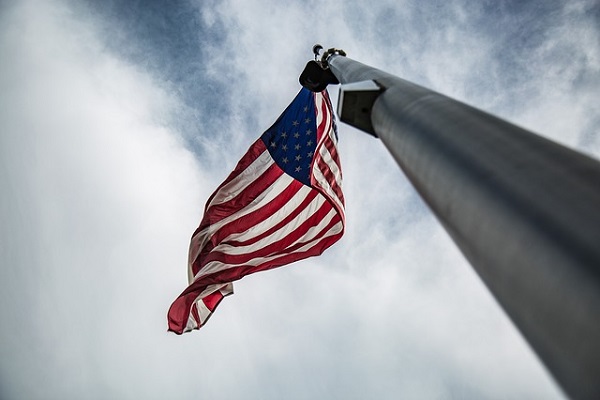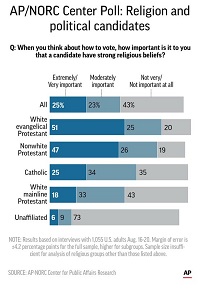
Study Shows Almost Half of All Americans Don’t Care About a Candidate’s Religion
- By Alison Lesley --
- 13 Sep 2018 --

Roughly 10 percent of voters do not believe in a higher power
The results of a poll conducted by The Associated Press-NORC Center for Public Affairs Research on the role of religion in public policy and politics was published on September 11. The numbers showed that Americans are unconcerned with whether a political candidate is devoutly religious or not[/tweetit].
Study Shows Almost Half of All Americans Don’t Care About a Candidate’s Religion[/tweetthis]

It was interesting to note there is almost no public support for cries by a few conservative leaders to permit religious organizations and clergy to endorse their chosen political candidates while continuing to retain tax-exempt status. About 53 percent of Americans oppose such changes while 13 percent supports it. No opinion was held by the rest of the respondents.
When it came to white evangelical Protestants, 51 percent of those polled regarded it extremely important that a candidate should hold robust religious beliefs. 25 percent considered it moderately important. When it came to white mainline Protestants and Catholics, the religiosity of the candidate was immaterial to their electoral decisions.
When it comes to holding office, it continues to be rare for any elected official to admit he or she is an atheist openly. According to multiple surveys, only about 10 percent of Americans do not believe in a higher power. Only a minuscule percentage of elected members of Congress identify themselves to be non-believers. For those who like diversity in the political landscape, the latest news is encouraging. The U.S. public has elected to victory Muslim-Americans in Democratic congressional primaries. What's more, the victors in Minnesota and Michigan were women. All these do not mean religion has taken a backseat. The poll conducted by AP-NORC found that religion has influence in dictating a number of policy issues. 49 percent of Americans prefer religion to influence education.
My religion helps me discern an appropriate candidate, but the candidate’s religion not so much.
— Cindy Winston (@CindyLuWinston) September 12, 2018



















